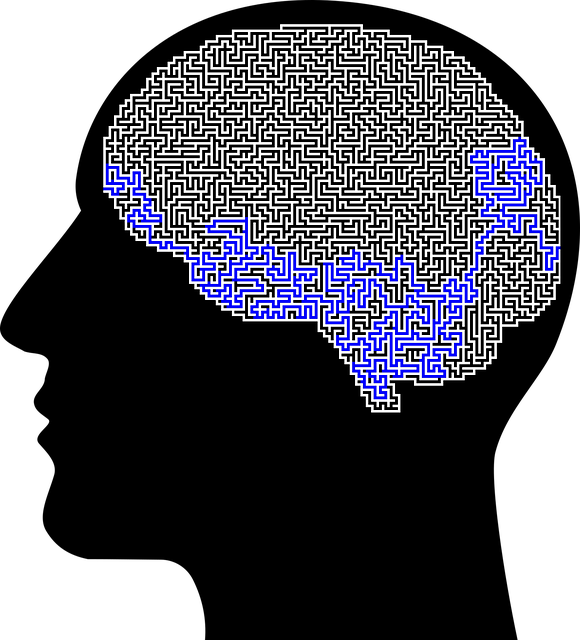Designing an effective mental health education program in Colorado Springs requires addressing rising opioid addiction and broader substance abuse rates through evidence-based strategies. The program should include community outreach, self-care practices, and emotional well-being promotion to reduce stigma and empower residents. Focusing on holistic approaches like Social Skills Training (SST) and risk assessments, along with interactive engagement strategies for youth and adults, is vital. Regular evaluation using pre/post surveys, focus groups, and interviews ensures the program's continuous improvement. Integrating Risk Management Planning for professionals enhances safety and sustainability, aiming to reduce reliance on Colorado Springs Drug Abuse-Substance Abuse Therapy services through effective coping mechanisms.
In Colorado Springs, addressing drug abuse requires a holistic approach, emphasizing mental health education. This article explores the comprehensive design of such programs, focusing on understanding the local drug abuse landscape in Colorado Springs. It delves into creating structured curricula, employing evidence-based therapy practices, and using interactive strategies to engage youth and adults. Additionally, it highlights evaluation methods to ensure continuous improvement in mental health education and substance abuse therapy within the community.
- Assessing the Need: Understanding Colorado Springs' Drug Abuse Landscape
- Program Structure: Creating a Comprehensive Mental Health Curriculum
- Evidence-Based Practices for Effective Substance Abuse Therapy
- Fostering Engagement: Interactive Strategies for Youth and Adults
- Evaluation and Continuous Improvement: Measuring Success in Mental Health Education
Assessing the Need: Understanding Colorado Springs' Drug Abuse Landscape

In designing a mental health education program for Colorado Springs, understanding the local drug abuse landscape is crucial. Colorado Springs faces significant challenges related to substance abuse, with rising rates of opioid addiction and other drugs impacting the community’s emotional well-being. According to recent studies, [insert relevant statistic about Colorado Springs’ drug abuse rate], highlighting a pressing need for comprehensive interventions. Assessing this scenario demands an in-depth look at risk factors, vulnerable populations, and existing service gaps to effectively target prevention efforts and promote emotional well-being.
The program design should incorporate evidence-based strategies tailored to address the unique needs of Colorado Springs. This could involve implementing community outreach programs that raise awareness about substance abuse risks and available treatment options. Additionally, integrating self-care practices and emotional well-being promotion techniques into educational curricula can empower individuals to build resilience and seek help when needed. By fostering a culture of open dialogue and support, these initiatives aim to reduce the stigma surrounding mental health issues and encourage effective coping strategies for all residents.
Program Structure: Creating a Comprehensive Mental Health Curriculum

A well-structured mental health education program is essential to combat the rising rates of substance abuse and promote healing in communities, especially in areas like Colorado Springs where drug abuse therapy services are vital. The curriculum should be designed to provide a holistic understanding of mental wellness, encompassing various aspects that contribute to emotional well-being. This involves integrating topics such as stress management, resilience building, and self-care routines development for better mental health. By educating individuals on recognizing their emotions and implementing healthy coping mechanisms, the program can foster emotional regulation, a key component in substance abuse prevention.
Public awareness campaigns development within the curriculum can play a significant role in breaking down stigmas associated with mental health issues. These campaigns can encourage open conversations about emotional struggles and normalize seeking help. Furthermore, teaching participants practical strategies for maintaining mental balance can empower them to lead fulfilling lives and make informed decisions regarding their well-being, potentially reducing the reliance on substance abuse therapy as a primary coping mechanism in Colorado Springs or similar regions.
Evidence-Based Practices for Effective Substance Abuse Therapy

In designing an effective mental health education program, especially for addressing substance abuse in Colorado Springs, incorporating evidence-based practices is paramount. One such practice that has shown promise in both research and real-world applications is Social Skills Training (SST). SST focuses on teaching individuals coping mechanisms and enhancing their ability to interact positively with others, which can be particularly beneficial for those recovering from drug abuse. By fostering social connections and healthy relationship dynamics, SST reduces the risk of relapse, a significant concern in Colorado Springs Drug Abuse-Substance Abuse Therapy.
Additionally, mental health professionals in Colorado Springs should prioritize comprehensive risk assessments as an integral part of their planning process. This involves not only identifying potential risks within the therapeutic setting but also considering the broader environmental factors that might impact a client’s recovery. Effective risk management planning includes implementing strategies to mitigate these risks, ensuring safety protocols are in place, and providing adequate support systems. Such proactive measures contribute to the overall success of substance abuse therapy programs, aligning with best practices in the field while addressing unique challenges prevalent in Colorado Springs.
Fostering Engagement: Interactive Strategies for Youth and Adults

Fostering engagement is a key aspect of designing effective mental health education programs for both youth and adults. Interactive strategies create an environment where participants actively participate, enhancing learning retention and applying concepts to real-life situations. For younger audiences, this might involve games, role-playing scenarios, and creative arts activities that encourage self-expression and peer interaction. These approaches not only make the educational process enjoyable but also help in building resilience and coping mechanisms early on, which is particularly crucial given the rising rates of substance abuse in Colorado Springs.
Adults often benefit from a slightly different approach, focusing on discussions, case studies, and skill-building workshops. Incorporating Mind Over Matter principles can empower individuals to take control of their mental well-being and prevent burnout, especially among those in high-pressure professions or with a history of substance abuse. Regular risk assessments for mental health professionals are also essential to ensure they can identify and address personal challenges before they escalate, thereby enhancing the overall quality of care provided within Colorado Springs Drug Abuse-Substance Abuse Therapy settings.
Evaluation and Continuous Improvement: Measuring Success in Mental Health Education

Evaluating the success of a mental health education program is paramount to its continuous improvement and long-term sustainability. Measuring success goes beyond attendance or satisfaction scores; it involves assessing the program’s impact on participants’ knowledge, attitudes, and behaviors related to mental health. By employing robust evaluation methods, such as pre- and post-program surveys, focus groups, and interviews, educators can gain valuable insights into the effectiveness of their Mental Health Education Programs Design.
These evaluations should focus on several key areas, including stigma reduction efforts, changes in help-seeking behaviors, and enhanced understanding of mental illness. For instance, tracking participants’ willingness to discuss mental health openly and their increased use of available resources, like Colorado Springs Drug Abuse-Substance Abuse Therapy services, can indicate successful Mental Illness Stigma Reduction Efforts. Furthermore, integrating Risk Management Planning for Mental Health Professionals into the evaluation process ensures that educators not only promote well-being among recipients but also prioritize safety within the program delivery itself.
In designing a mental health education program tailored to Colorado Springs’ unique drug abuse landscape, it’s essential to integrate comprehensive curriculum, evidence-based practices, and interactive engagement strategies. By assessing the local needs and fostering an inclusive environment, we can effectively deliver substance abuse therapy that resonates with both youth and adults. Continuous evaluation and improvement ensure the program remains dynamic, adapting to emerging trends in mental health education while measuring success through tangible outcomes. This holistic approach has the potential to revolutionize support systems within Colorado Springs, ultimately reducing drug abuse rates and enhancing overall well-being.














